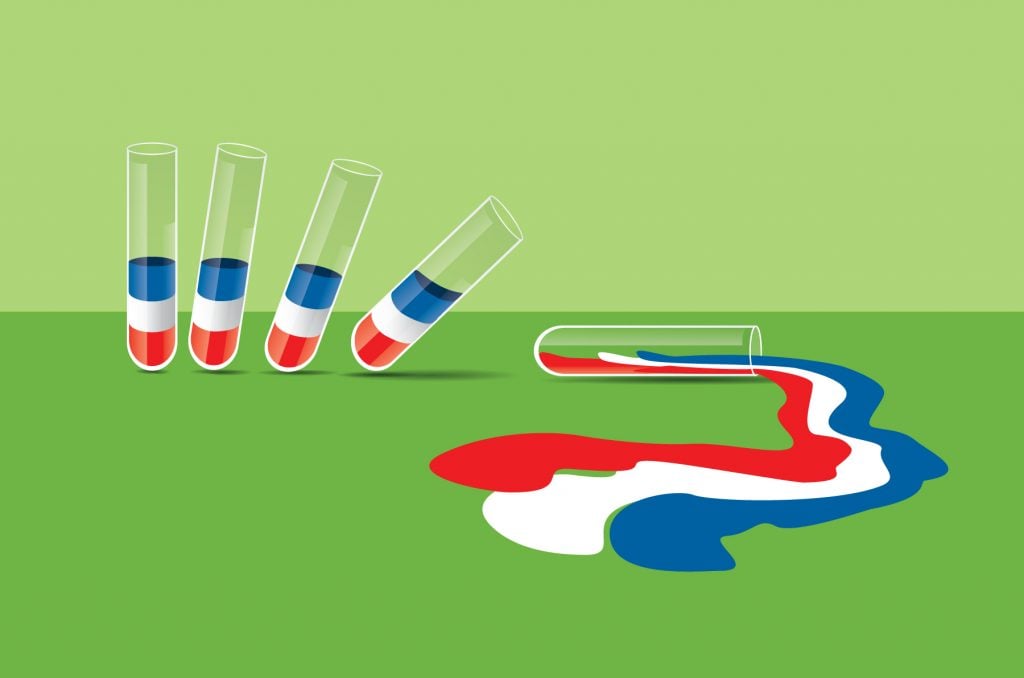
I was riding the train to Washington, D.C., when a news alert appeared on my phone: a “travel ban” had been placed on Muslims entering the United States. This was a week after the presidential inauguration and only three months since I had been granted U.S. citizenship. Already, I was growing accustomed to constant ups and downs in the news cycle and tense discussions among family and friends. The Muslim ban hit especially close to home.
Well-meaning friends were quick to reach out with questions and assurances. “Are you OK?” “Will you still be able to travel?” “Hey, at least Pakistan wasn’t on the list, right?”
While I was mildly concerned for myself and my family, the bulk of my worry was for my students and colleagues who were from countries mentioned in the ban. Each year, dozens of strong candidates from Muslim-majority countries apply for admission to my department at the Whiting School. The process of getting student visas from these countries was already difficult, and with the Supreme Court’s subsequent decision to uphold the Muslim ban, it will be nearly impossible.
Faculty members who fund their PhD students primarily through federal funding now have no idea what to do with these applicants. Does the policy mean we should reject applicants from banned countries outright? And what about the people who are already scheduled to come? Some have turned down opportunities to study in Canada and Europe in order to attend Johns Hopkins. What options are left if they can no longer enter the U.S.?
Beyond students, my research colleagues both inside and outside the U.S. are in limbo. An Iranian colleague and his wife, both of whom received PhDs in civil engineering from Johns Hopkins and are on the faculty at the University of Massachusetts, were among those who were detained indefinitely at Boston’s Logan Airport when the ban was first put in place. They ultimately were allowed to enter the country, but many others weren’t. Across the country, my peers have had trouble obtaining visas to attend academic conferences, faculty members have been unable to return to teach their courses, and international collaborators have had to discontinue research projects because of these policies. The amount of science lost in the past year cannot be quantified.
It’s easy to brush off the travel ban and other immigration policies as having a temporary impact, but that’s simply not true. At Johns Hopkins, as at other top U.S. research universities, international students comprise a significant portion of the student population. We have seen a drop in the number of new international students enrolling at major U.S. universities for the first time in more than 12 years. These are students who would have helped drive academics and research at Johns Hopkins and elsewhere. And like me, many of these foreign students would then have gone on to become postdoctoral fellows, researchers, and faculty members all over the country. They also would have started companies, created jobs, and formed a major part of the U.S. workforce.
The U.S. has been fortunate to attract more international students than any other nation, but current immigration policies will change this trend, and that doesn’t bode well for science.
Throughout history, science has prospered in free and open societies. Great eighth-century Islamic scholars of the Abbasid dynasty were allowed to practice their religion and exchange ideas freely, including those from Greek philosophy. Jewish scientists, including Albert Einstein, escaped anti-Semitism in Europe by coming to the U.S. Another of these immigrants was my professor at the University of Maryland, Misha Brin, whose son, Google co-founder Sergey Brin, has had an immeasurable impact on American life.
Science can only continue to prosper here if the country remains a place where ideas and ingenuity are valued—no matter where they come from.
Sauleh Siddiqui is an assistant professor of civil engineering at the Whiting School.




